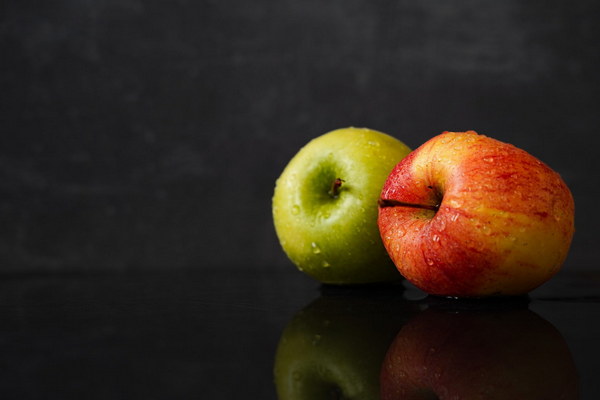Harmonizing Health The Synergy of Traditional Chinese Medicine and Nutritional Therapy
In the realm of holistic health, the integration of Traditional Chinese Medicine (TCM) and nutritional therapy has emerged as a powerful approach to wellness. This article explores the fascinating synergy between these two ancient practices, highlighting their complementary roles in promoting physical, mental, and emotional balance.
Traditional Chinese Medicine (TCM) is a comprehensive system of healthcare with a rich history spanning over 2,500 years. It encompasses various modalities, including acupuncture, herbal medicine, tai chi, and dietary therapy. At the heart of TCM lies the belief that health is achieved when the body's energy, known as Qi, flows harmoniously through meridians, and the Yin and Yang forces are balanced.
Nutritional therapy, on the other hand, focuses on the role of food as medicine, emphasizing the importance of consuming a balanced diet rich in essential nutrients to maintain health and prevent disease. By combining these two practices, individuals can achieve a more profound level of wellness, addressing both the root causes of illness and the body's overall balance.
One of the key principles of TCM is the concept of food as medicine. TCM practitioners believe that certain foods possess specific properties that can either nourish or cleanse the body, depending on the individual's constitution and the specific imbalances they may be experiencing. For example, warm and spicy foods are often recommended for those with cold and damp conditions, while cooling and soothing foods are ideal for those with heat-related imbalances.
Nutritional therapy complements this approach by providing personalized dietary recommendations based on the individual's specific needs. A nutritionist or TCM practitioner may suggest incorporating certain superfoods, such as goji berries, ginseng, and ginger, into the diet to support overall health. Additionally, they may recommend avoiding foods that exacerbate imbalances, such as sugar, refined carbohydrates, and excessive caffeine.
Acupuncture, another vital aspect of TCM, can also be used to enhance the benefits of nutritional therapy. By inserting fine needles into specific points on the body, acupuncture promotes the free flow of Qi and can alleviate symptoms associated with imbalances. This, in turn, may enhance the effectiveness of dietary changes by allowing the body to better absorb and utilize the nutrients it receives.
Tai chi, a gentle form of martial arts, is another practice that can be integrated with nutritional therapy and TCM. Regular tai chi practice has been shown to reduce stress, improve flexibility, and enhance overall physical and mental well-being. By combining tai chi with a balanced diet, individuals can create a comprehensive approach to health that supports their body's natural healing processes.

The synergy between TCM and nutritional therapy can be particularly beneficial for chronic conditions, such as diabetes, hypertension, and autoimmune diseases. For instance, in the case of diabetes, TCM may recommend a combination of herbal medicine, dietary therapy, and lifestyle changes, such as tai chi, to help regulate blood sugar levels and improve overall health.
In conclusion, the combination of Traditional Chinese Medicine and nutritional therapy offers a powerful tool for achieving holistic health. By addressing the root causes of illness and promoting balance within the body, these practices can help individuals achieve long-lasting well-being. As we continue to explore the potential of these ancient practices, it becomes increasingly clear that the key to a healthy life lies in the harmonization of body, mind, and spirit.









